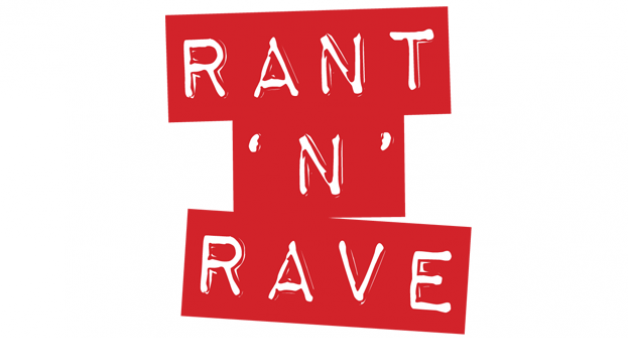 I am astounded as I read articles and headlines about what is happening in the United States and throughout the world.
I am astounded as I read articles and headlines about what is happening in the United States and throughout the world.
Last week, I wrote about victimhood and this fad that seems to be overrunning our culture that someone else needs to fix it when bad things happen to me. I hope, that as I wrote, I never gave the impression that we are to never seek help! Instead, the idea is that we should never sacrifice our power by believing that we are completely helpless. Once babies begin to crawl, they begin the process of being able to act and to choose. We don’t lose those powers.
Today, I am going to speak to some headlines that I have been collecting over the past few weeks. I had intended to write about them separately, but I just don’t have the time!
Altercation between White Lives Matter supporters and interracial couple in Brentwood under police investigation: I can understand how Caucasians, especially white men, feel like they are being marginalized and criminalized for race and gender in the current political climate. I can understand the desire to speak up and speak out. But I don’t get harassing people who were quietly going about their own lives and not bothering you! How on earth does this draw sympathy to your cause?
Personally, I have become convinced that white privilege is real. I’m not convinced that it is a sinister plot against anyone. Instead, I think it is an outgrowth of the history of this country and largely invisible to those who enjoy it. I think we still have work to do in giving everyone an equal chance to excel and be the best that they can be.
I also think that we can do this without marginalizing anyone. All that does is reverse roles in society. Tearing others down doesn’t build anything. “Building a bigger table” and inviting others to share what we have is much more productive. So, what aren’t we? Why are we picking fights and demonizing groups of people?
Why Some Black and Brown People Can’t Trust Bernie Sanders, in 1 Quote: If I have ever seen a case of nitpicking paranoia, I think this opinion article is a classic! In trying to communicate his ideas, he mentioned Latinos, LGBTQ, and blacks. He then moved on to a sentence where he mentions “ordinary Americans.” For this writer, this is proof, case closed, that Bernie Sanders doesn’t see the Latinos, LGBTQ, and blacks as “ordinary Americans,” but as separate and distinct!
Yes, Bernie Sanders is a white male. Yes, he has probably enjoyed privilege because of his gender and race. His gender, race, and age do affect his word choice. But, to take one statement out of a lifetime to “prove” that he has some hidden agenda is absurd!
At some point, we have all got to develop a thicker skin and stop sweating the small stuff! While I don’t agree with Bernie Sanders’ political views, I think that his entire career should be scrutinized before anyone assigns him a secret agenda based on word choice in two sentences!
NFL kneeling protests based on false claims and misleading media reports: Ugh. I am not a fan of the kneeling protests. I believe that anyone who lives in the United States benefits from living here. Perhaps it’s not as wonderful as we would dream it would be, but I kind of lean toward the sentiment that there are a bunch of grown men who are making truckloads more than I will ever earn in my lifetime protesting because America isn’t fair. It looks a lot like hypocrisy to me.
Instead of offending veterans of all ethnic backgrounds who gave their time, limbs, sanity, and even lives to give you the chance to make absurd amounts of money because you can throw and catch a ball, why aren’t you out there doing something proactive? There are many celebrities that have started charitable foundations, restaurants that will give those who are homeless a free meal, etc. They didn’t make a huge, public scene — they got off the rumps and did something!
Education NGO Faces Backlash from Academics After Retracting Essay Citing Intelligence Research: This one comes to us from England, but it’s worth a mention because these types of stories happen in the United States, as well. In this article, an educational institution that is responsible for training teachers removed a research article that had been posted on its website because it challenged the prevailing ideologies of the educational establishment. The paper was removed even though the author had followed all of the requirements and the university had published it alongside an opposing paper.
What was the problem? The author of the paper had gone back through studies and concluded that education cannot solve all of our society’s ills. He had the audacity to suggest that children who are hungry and improperly nourished can’t be educated to the same degree as children who come from homes where their nutritional needs are adequately met. He came to the same conclusion about children who have “disrupted childhoods”: abuse, neglect, marginalization, violence in the community, etc.
As someone who taught for 16 years and is still working with children, I can tell you he’s right. I can also tell you that blaming the teacher hasn’t helped. We have made some gains, but when the brain can’t grow properly because it isn’t nourished properly, there is no educational program that can overcome it!
So, what is going on here?
It must be human nature, but it’s a part of our nature that we need to overcome:
- blame someone else for the problem,
- create a fuss,
- demand that someone (not me!) needs to do something about it,
- expect to sit back and reap the rewards with no real effort.
In each of these stories, that is the theme I see. We have become accustomed to reacting. It’s time to get out there and thoughtfully start proacting.
It’s your turn! What would you like to see happening to improve our nation and world? What kind of organization would you form or join?


